Back to Gameschool ~
Written by Caitlin Fitzpatrick Curley of My Little Poppies
It’s no secret that I’m a huge fan of play. I truly believe that homeschooling can be almost all fun and games. Does that mean our homeschool is all sunshine and roses? Not even close! But I do think homeschooling can be more fun than we think.
Play has the power to transform a homeschool.
And, guess what? Science has shown that play is good for all of us, not just our kiddos!
Today, I’d like to share some of my back to gameschool tips with you.
But, first, I want to share one of my favorite gameschool stories…
I have three children (ages 11, 9, and 7) and they are all big gamers. That said, my littlest guy has always been the biggest gamer of the bunch. He could play games all day. In fact, he often plays games with his imaginary BFF, Mister Pancake, when no one else is available.
A few years ago, this little guy was on the cusp of learning how to read. At that time, our entire family was obsessed with a quirky little card game from Gamewright called GUBS.
The littlest fella was, by far, the most obsessed member of our party. He woke up in the morning and asked to play GUBS. He wanted to play one last round before the day was done. I kid you not- my thumbs were sore from all the shuffling.
We were having a blast and making oodles of memories but there was one problem: the little guy couldn’t read yet and so he needed to be on my team.
For those unfamiliar with GUBS, it’s a card game based on an imaginary world. For a little kid, there are lots of unfamiliar words: Velvet Moth, Toad Rider, Esteemed Elder, Super Lure, Haki Flute. I could go on and on.
What I’m trying to say is that GUBS was not the BOB Book of the game world. It was tricky! It was way above his reading level.
And yet…
My little guy was head over heels with this game. He’s a pretty imaginative little fella and he was completely lost in the land of GUBS. He talked about the world, its characters, and its obstacles morning, noon, and night.
He was determined to play GUBS independently. As much as he loved to play with us, he was tired of being on my team. And do you know what? In a matter of a month or two, he accomplished his goal. He could play GUBS without assistance. He could read all the cards.
And then, he read Fantastic Mr. Fox (afflink) all by himself! He was a reader and to this day I give full credit to his determination and that quirky little card game.
Now, is GUBS one of those “educational” games that you see on Pinterest? Nope. Does it explicitly teach reading? Not even a little.
But here’s the thing that we tend to forget: Children learn through play. Gameschooling offers kids a chance to learn new skills, to practice old ones, to fail, to succeed, and to try again. Games don’t judge. They aren’t threatening. Games don’t assign homework. They don’t correct. Games offer a safe space for learning.
Today, I am going to share a few favorite games for your homeschool and I will list them by subject but I want you to remember GUBS. Children learn through play, period. They do not need an “educational” game to build skills. They need only a willing parent and some white space on the day’s schedule.
So without further ado, I’d like to share a few of my favorite games by subject. (If you are looking for more ideas, I have more extensive lists by academic subject in addition to other categories here.)
Math
Almost every game on the market today involves some math. Some of my favorite affordable math games include:
Helpful hint: You can often find used copies of Yahtzee and Monopoly at thrift stores and yard sales!
Language Arts
Virtually every game you play will involve reading.
Here are a few of our family’s favorite games for this category:
- Tall Tales
- Rory’s Story Cubes and/or eeBoo’s Create a Story Cards
- Mad Libs (Yes, there is a game!)
Here are some other ideas:
- Use a favorite game as a writing prompt. For example, remember GUBS, that quirky little card game that I mentioned earlier? You could make up an entire story based on those cards!
- Ask your children to take turns reading the instructions. This helps with reading aloud and reading comprehension.
- Have your child keep score. This helps practice those writing skills.
- Make up your own game! Think of how many skills this would involve, far beyond reading, writing, and language arts!
Science/Nature
Here are just a few of our favorite games for science and nature:
- All of the science games created Genius Games
- Cardline Animals
- Hit the Habitat Trail
- Professor Noggin Science-themed decks
Geography
Some of our favorite geography games include:
Here’s another super simple idea- Invest in a decent globe and play with it with your kiddos. Remember when you were little and you’d spin the globe and close your eyes, place your finger on it, and see where you’d land? Do you know how much learning can happen with that type of play? Add an atlas or check out Google Earth to take the play to the next level.
History
Here are a few of our family’s favorite history games:
You can gameschool all those other subjects, too!
It’s true! From coding to fitness to art to music to logic, there are countless play options. There are even options for solo play and cooperative gaming. If you get stuck, check out our gameschooling by academic subject landing page.
Games help families to connect and to build memories together. Play makes for more cooperative kiddos and happier parents.
I promise you- play can change the entire atmosphere of your homeschool. If you need help getting started, here is a free list of gameschool prompts for every single day of the year.
I wish you all a successful, connected and play-filled homeschool year!
Now tell us- what is your family’s favorite game? Share here!
This post contains affiliate links, which means I receive a small commission from some of the links on this page.
What’s Your Homeschool Mom Personality? Take Jamie’s quiz now and receive a free personality report to help you organize your homeschool based on what your personality type needs most!

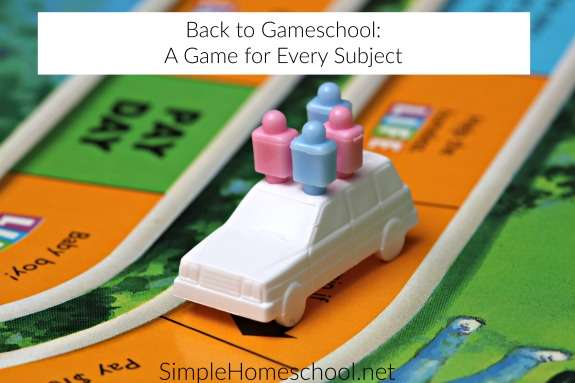

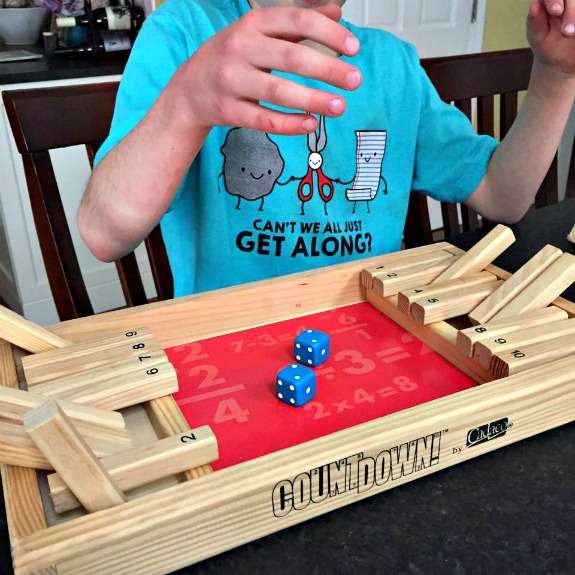
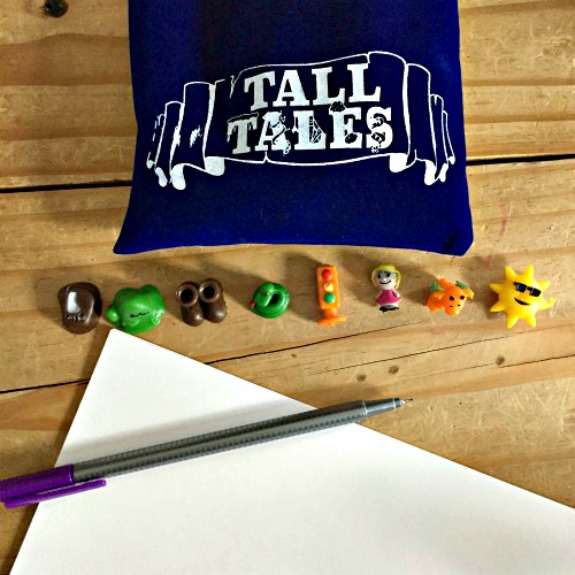
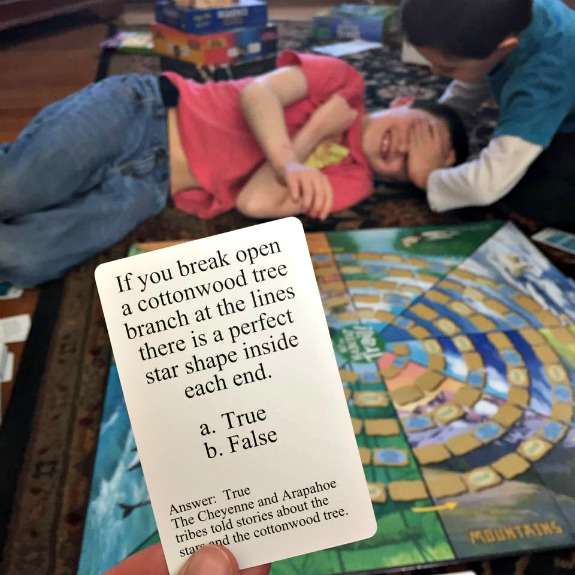
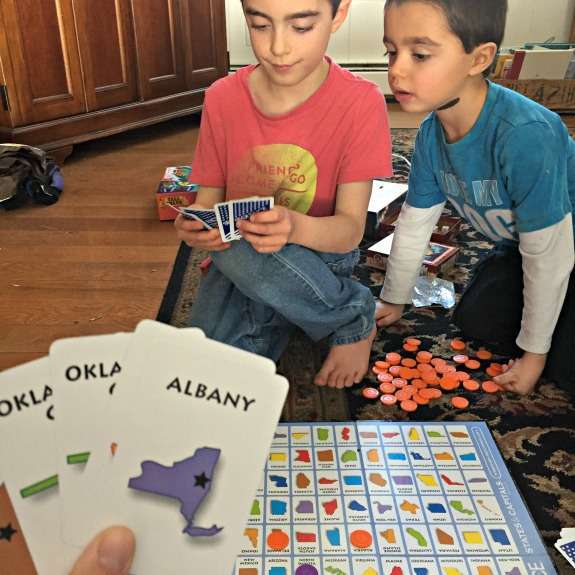
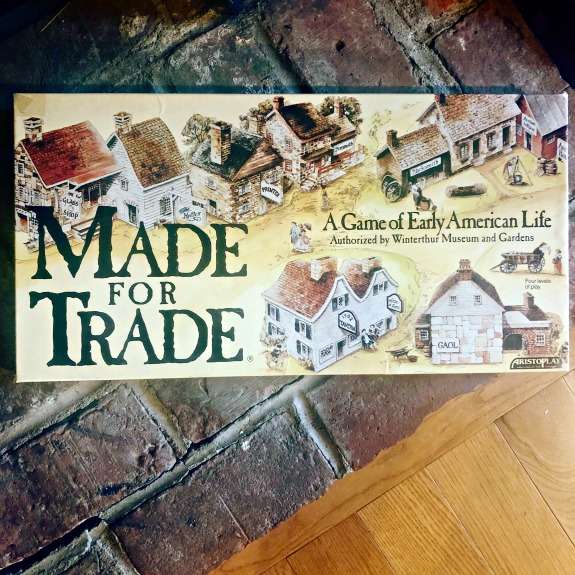

 Weekend homeschool links
Weekend homeschool links
We also love Gubs, but my non-early reader quickly learned to play it without reading . . . he just memorized the cards!
It’s such a wonderful game!
Caitlin Fitzpatrick Curley’s latest post: Gifted Homeschool Curriculum: 3rd, 4th and 6th grade
I love the idea of gameschooling, or even just adding more games to our day. My question is how is the flow of your day? With getting to even 3 games, do you have an order for the day (like setting a time limit per game) or just let happen spontaneously?
Hi, Ashley!
I have loads of posts on my site about this and if you sign up to join our community, you can get oodles of gameschooling tips’n’tricks. But, in a nutshell, we consider play to be an important part of our homeschool day. It’s just as important as math and language arts. Science has shown again and again that play is good for all of us (not just our kiddos). Plus, play promotes connection and makes memories. By starting your day with play, or by adding play to your day, you will find you have happier, more engaged kiddos.
Caitlin Fitzpatrick Curley’s latest post: Health and Human Anatomy in Your Homeschool